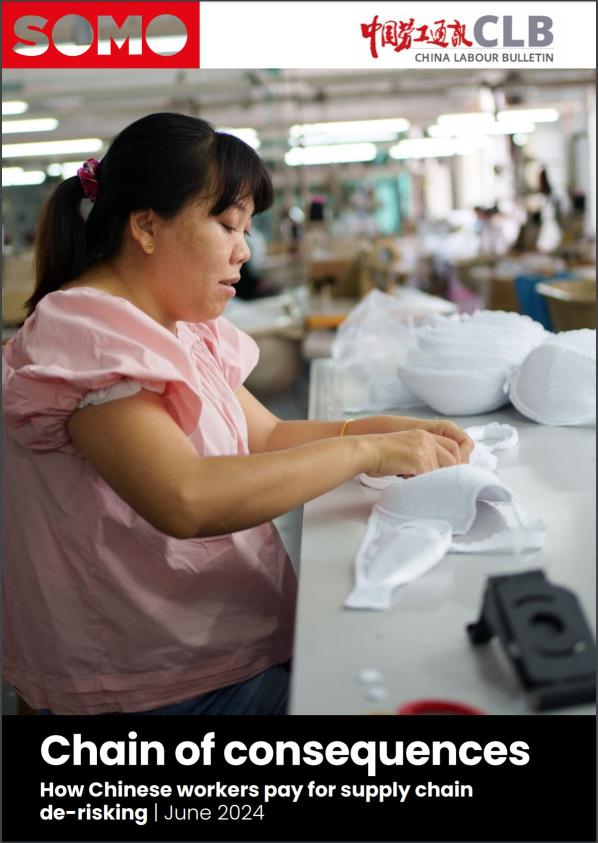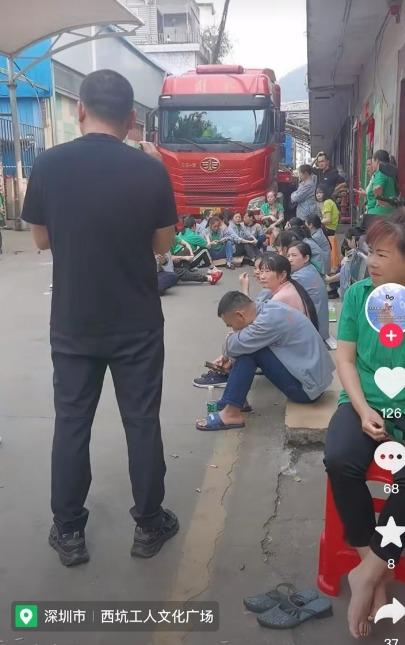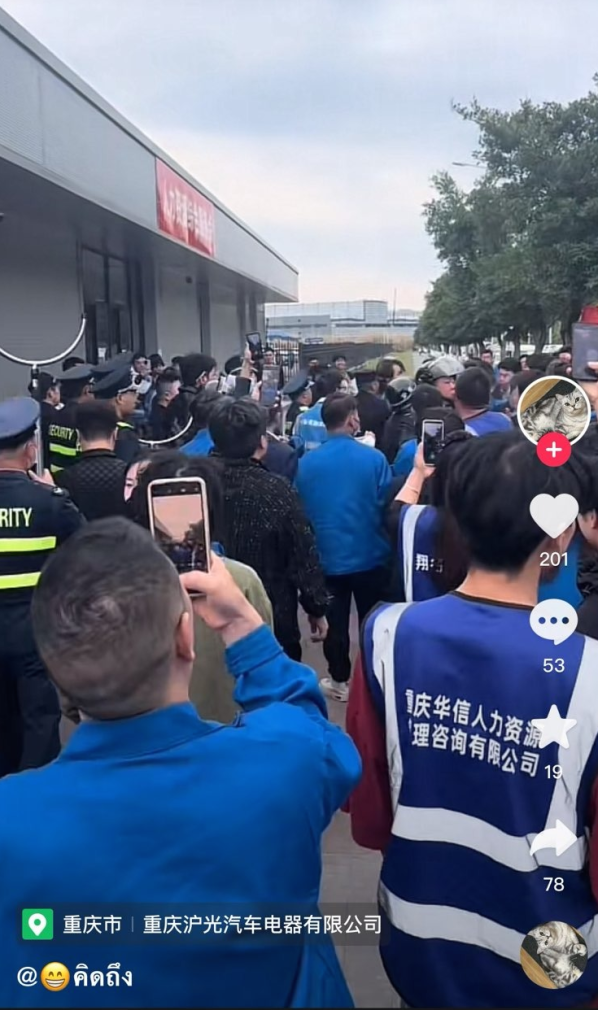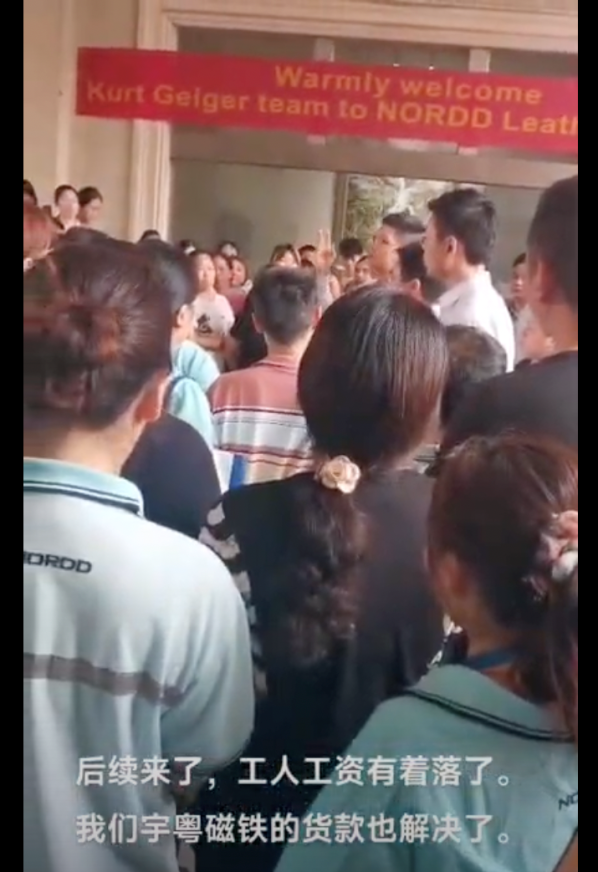
Letter from the Editors
This month, SOMO (Centre for Research on Multinational Corporations) and China Labour Bulletin (CLB) published a report about Chinese workers' struggles amid global supply chain shifts and the need for responsible business practices. Our research indicates that shifting production due to economic and geopolitical tensions brought about a surge in workers' strikes. Especially in the apparel and electronics sectors where many multinational brands are moving supply chains, the relocation or closure of factories has led to wage delays and inadequate compensation for the affected workers.
CLB provides a wealth of data concerning Chinese worker grievances, and additional research by SOMO makes it possible to identify downstream buyers who might have the leverage to help address the matter and facilitate timely intervention and accountability. This collaborative report provides important insights for companies and regulators regarding labour rights in global supply chains.
Thanks for reading!
CLB editors
Workers’ Representation

Workers sat in front of the Qiaofeng factory. Source: Douyin
CLB: During this process, you said these two people had already been dismissed. When they were dismissed, did the company follow the procedure, and did it go through the enterprise union's agreement?
Wu: Yes.
CLB: So, the enterprise union agreed to it?
Wu: Yes.
After the strike at Qiao Feng Technology Industrial Co., Ltd. in Shenzhen, at least two workers were dismissed by the management due to their protest against relocation and demanding unpaid social insurance payments. CLB sought clarifications from the enterprise union chairperson, Wu, on whether they resigned voluntarily or were indeed dismissed. Wu admitted that the workers were dismissed by the company and that the union agreed with the company's decision.
Wu specifically mentioned that the company believed these individuals were spreading rumours and planned to sue the so-called leading workers. "The company now insists on suing them." She also provided the names of the two workers.
Chairperson Wu’s remarks revealed that the enterprise union mostly sided with the factory, believing there was no real relocation. Wu genuinely believed the narrative that there was a "hidden hand" behind the scenes. The union failed to win the workers' trust and could not become a channel for labour-management communication, and instead became a rubber stamp for the factory to dismiss workers.
Qiao Feng Technology’s dismissal of workers after a strike potentially violates Chapter 2, Section 6 of the German Supply Chain Act, which protects the right to strike and collective bargaining. Brands that Qiao Feng Technology supplied are subject to the German Supply Chain Act (or other due diligence laws in their home country that governs supply chains) and may face responsibility.
Workers’ Voices

Photo: workers protesting at the factory gate of Chongqing Huguang in March 2024
This is Chongqing Huguang Technology Company, a deceitful company. They trick people into joining, then make employees take time off every day. They neither arrange work for you nor dismiss you.
When factories in China do not arrange work, workers are left with no pay and are forced to resign by themselves. In late March 2024, Chongqing Huguang Automotive Electrical Co., Ltd. saw many hourly workers gathering outside the factory gate to protest against the factory's failure to arrange work shifts, which meant that workers could not complete enough working hours to receive the gratuity. Factory security with helmets and restraining poles were seen confronting the workers on online videos
Worker comments and recruitment advertisements showed that they were promised an hourly wage of 24-30 yuan and a gratuity of about 4000-6000 yuan after completing a certain number of hours in the factory. However, the actual hourly wage was only 21 yuan, and workers could only get an hourly wage of 24 yuan after three months of full attendance. It is also hard for workers to get full attendance due to the back-breaking work and long working hours in the factory. Workers commented they had to stand for 12 hours or more per day, and could not take sick leave or they would be subjected to financial penalties.
Just as workers were about to reach the hours required to receive the gratuity, the factory forced them to become regular employees (with lower hourly pay) or resign. Thus, the factory avoided paying the promised gratuity. Also, the factory did not properly lay off workers but put them on leave. Workers also spoke of wage arrears. After the workers protested, some received their delayed wages based on the hourly wage of 21 or 24 yuan.
China Labour Bulletin (CLB) found that Chongqing Huguang's parent company is a supplier of auto OEMs including Volkswagen, Audi and Mercedes-Benz. CLB conducted an investigation and identified several possible labour violations, regarding its employment practices, excessive working hours, and union’s inaction. German companies downstream have a responsibility to conduct due diligence following the requirements of the German Supply Chain Act.
Strike Action
Workers strikes continue. China Labour Bulletin’s Collective Action Map recorded 91 worker protests in May 2024. The construction industry accounted for 43 incidents, similar to the previous month (48%). The manufacturing and heavy industries had a total of 32 incidents, making up about 35%. The service and transportation sectors had 7 and 5 incidents, respectively.
Workers rejected from withdrawing their funds from Nanyang Cotton Spinning Factory, with social security payments unpaid. On 15 May, workers from the Nanyang Cotton Spinning Factory in Henan Province staged a road-blocking protest to demand their investment funds. Since the factory was acquired by Mingmen Real Estate in 2006, the company has been continuously attracting workers’ deposits with annual interest rates of 20% and 15%. However, real estate companies experienced difficulties in 2019, with reports of project halts and delays in housing deliveries. There was a halt in internal investments in 2020, causing a run on the bank by depositors. The company prevented workers from withdrawing funds, and depositors have been unable to access their money for four years. Despite repeated protests by the workers, the issue remains unresolved. On 21 May, in response to a plea for help regarding social security payments on the leadership message board, the Nanyang Human Resources and Social Security Bureau stated that the enterprise is involved in multiple private loans and is unable to bear the social security costs. It also added that it has no authority to force the enterprise to make supplementary payments, and workers have to wait for the special task force established by the municipal party committee and government to resolve the issue.
Workers’ Requests for Help
A private hospital temporarily closed down, claiming it needs a third-party capital injection to pay salaries again. On 24 May, Xi’an Medical Oncology Hospital posted a notice stating that a three-month upgrading and reconstruction would be carried out, during which diagnostic and treatment services would be suspended. In fact, the hospital was not well-managed, and all employees had been forced to stop working. Mr. Zhang, who had served as a radiology technician for 2 years, told the media that the hospital only issued a fixed salary of about 3,000 yuan for February wages and suspended performance pay. The wage arrears continued for April and May, resulting in an unpaid wage of nearly 10,000 yuan. The hospital claims that it requires third-party funds before it can issue wages. Previously, the hospital had more than 50 employees, but after downsizing, there are only about 20 employees, all of whom are owed wages. For instance, one janitor with a monthly salary of 2,900 yuan was owed wages, while a mid-level staff member was owed more than 100,000 yuan. The Labour Supervision Group has issued an inquiry notice to the hospital and is investigating the situation. Additionally, some employees are going through labour arbitration procedures.
Three migrant workers were owed wages for two years and finally claimed 50,000 yuan after media exposure. In 2021, Mr. Zhou and two relatives were involved in plumbing and electrical installation during the fourth phase of Greenland New City in the Xixian New District Airport in Shaanxi Province. They were owed more than 10,000 yuan in wages each, totalling about 50,000 yuan. Mr. Zhou filed a complaint to the local Labour Supervision Group, which accepted the case and assigned a staff member to handle it. However, two and a half years have passed, and there has been no substantial progress in resolving the issue. Notably, Mr. Zhou has a 14-year-old son suffering from leukaemia, and urgent treatment requires funding. On 26 May, Chinese Business View reported Mr. Zhou’s case, prompting the Xixian New District to pay close attention. After verification, it was discovered that the wage suspension was due to disputes between the general contracting unit and the subcontracting unit. Finally, after coordination with various groups, the general contracting unit agreed to set aside the wage dispute and pay Mr. Zhou and the other three workers a total of 51,830 yuan. The Xixian New Area will also establish an investigation team to verify any wage arrears during the project’s construction period.
CLB Insights

Photo: Workers gathering at the factory gate of Nordd. source: Workers' Douyin
Leather factories in Guangdong have faced operating difficulties since last year, accelerating closures and resulting in workers’ protests. CLB's Strike Map recorded four leather factory wage disputes in the first five months of 2024, matching the total number in 2023 and a noticeable increase from one case in 2021.
CLB recently investigated a leather factory closure case in Dongguan, Guangdong province.
When Nordd Leather factory closed suddenly on 8 May 2024, workers were not paid their wages and could not find Nordd's owner; they had to gather outside the factory with banners demanding their legal payback.
The leather luxury goods industry has not been spared from the global economic downturn, and leather brands’ cost-cutting strategies possibly suppressed workers’ conditions. Amid challenging economic times, leather product brands are increasingly responsible for monitoring illegal practices in their supply chains.
Recent Milan court rulings highlight that leather brands should monitor suppliers’ labour conditions; otherwise, they may face legal penalties. Both the supplying factories and the brand companies are liable if they fail to protect workers’ rights.
